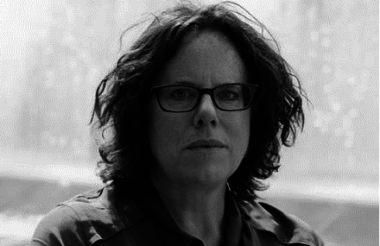Polly Neate, who has just become the chief executive of Shelter, has warned that “power is concentrated in the hands of the few” in the sector and called on leaders of large charities to look at ways to share power.
Speaking that NPC’s annual conference yesterday, Neate, warned that “power and privilege are risking destroying the sector from within” and that large charities need to change their behaviour.
Neate said that a narrative had grown up that the sector has a communications problem, whereas the root of the issue was actually the behaviour of a few large charities.
“I don’t believe that people are losing trust because they don’t understand how charities work, and yet that is the dominant narrative,” she said.
She added that the communications issues were a “symptom rather than the cause”.
“The few who already have too much to lose are driving sector behaviour, driving perception of the sector,” she said.
Neate warned that there is a “real risk that while we’re worrying about the sector’s comms problems our sector will continue to change dramatically as it is currently doing”.
She also criticised the reliance on public affairs and suggested that if government isn’t listening, charities should find other ways to achieve change.
She said that even though charities might feel “on the back foot” and “quite powerless” the sector was in a unique position of being able to influence because of “incredible access to policy makers”. She said charities are still more trusted than many other sectors, and had the ability to influence what the public thinks.
‘Contracting and branding’
She explained how in her previous role as chief executive of Women’s Aid she had heard of large national charities bidding for contracts and taking work away from small charities.
Neate called for the sector needs to use share power and “use our privilege differently” so that local specialist charities, born from personal experience and activism” don’t disappear.
She criticised charities for talking about bidding for contracts “as though it is inevitable” and said “bidding is a choice”.
She also said that the corporate branding at larger charities was damaging the sector as a whole. She said corporate brands are the “enemy of partnership”.
It also “stops civil society or idea of charity having a brand,” or a “clearly recognised identity and set of values” she said.
‘It will hurt’
“The good news is we can sort ourselves out,” she said, and highlighted the work of Julia Unwin’s commission on the future of civil society as a “real opportunity” to discuss new ways of working”.
But said that: “Organisations with power facing their privilege and having courage to address it is only way that we as a sector will seize the moment.”
Neate called for an “honest conversation about how we can share power as sector,” but warned that it will “hurt”.
“If we want to think of ourselves as a third force we need to have more of a united front,” she said.
Some “big charity brands will have to make a sacrifice” she said.









